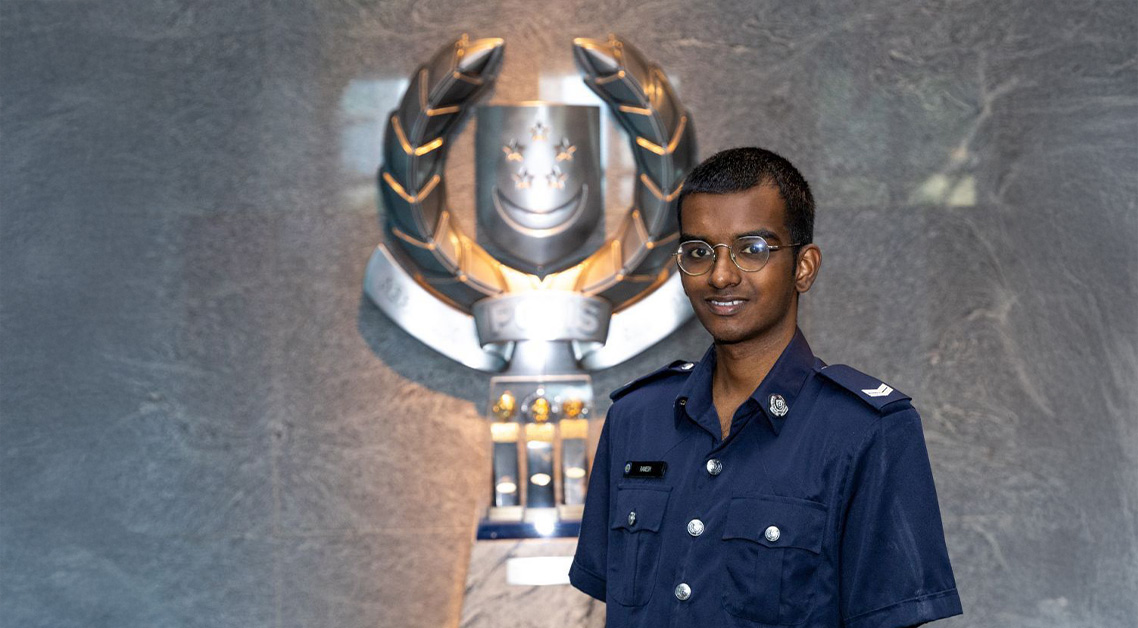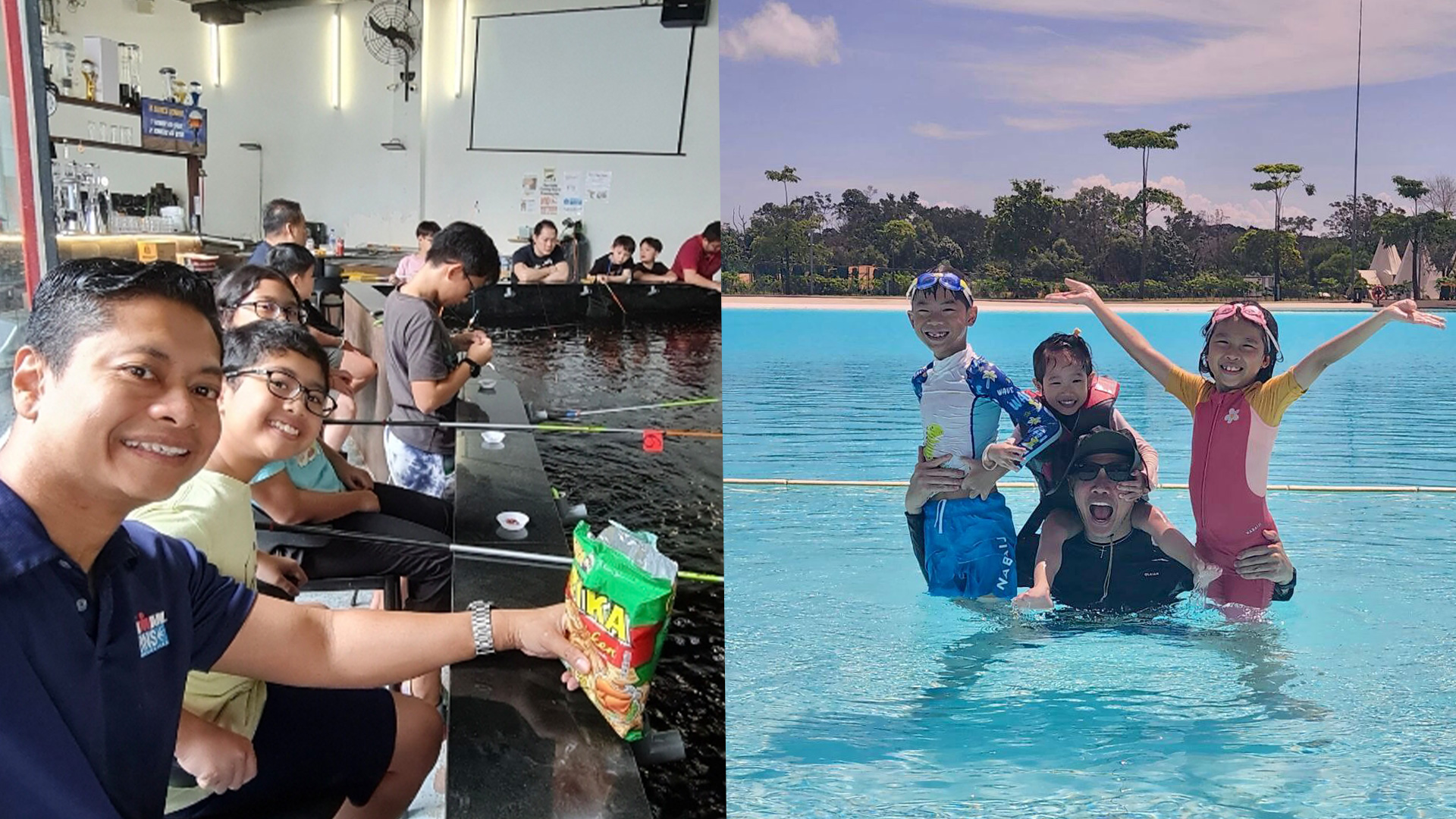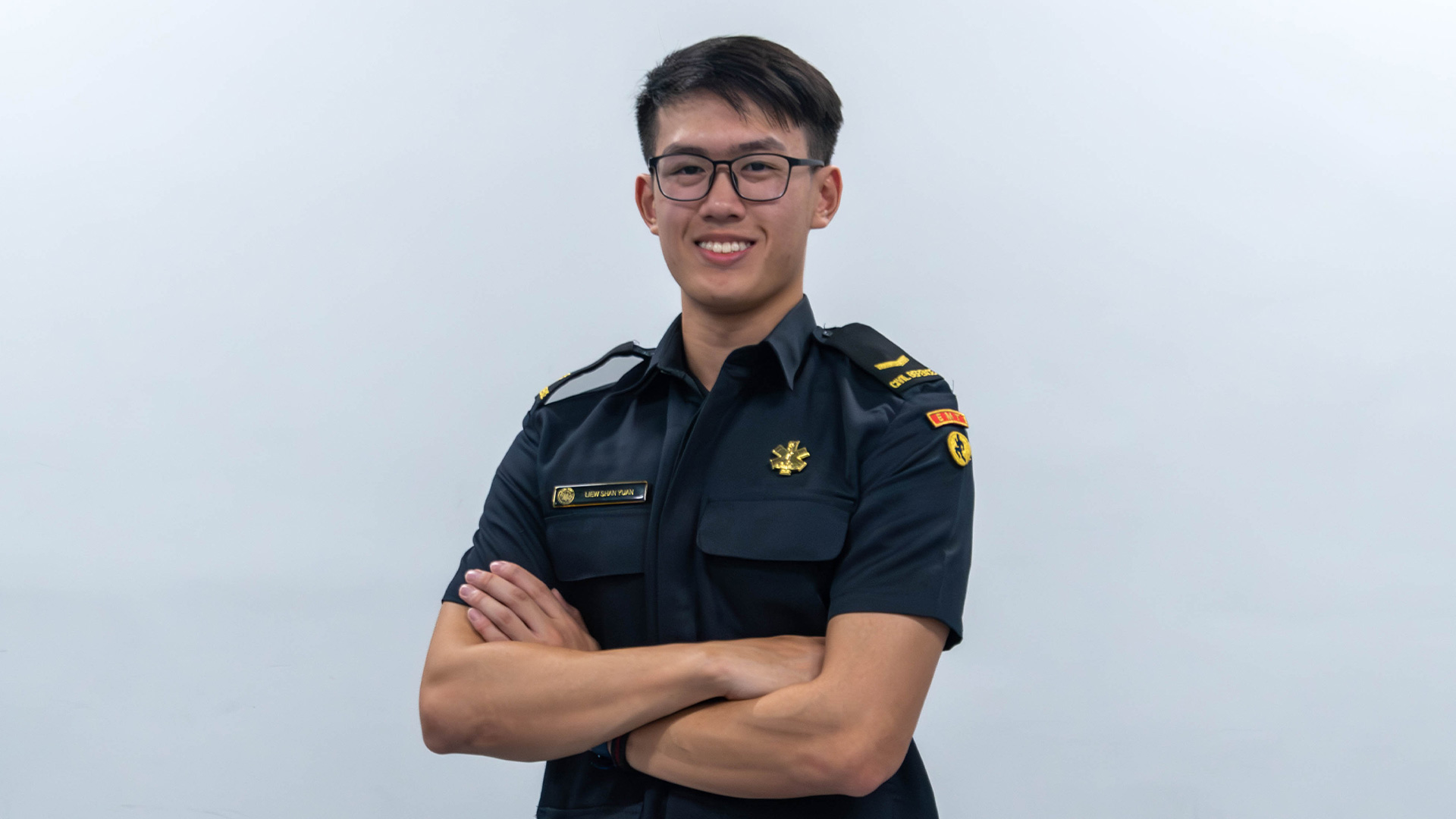
Amid a year of highs and lows, Lance Corporal (LCP) Daniel Liew learnt to summon his “inner warrior” and discovered resilience, growth and the power of a supportive team.
As an Emergency Medical Technician (EMT) instructor at the Singapore Civil Defence Force (SCDF) Civil Defence Academy, Lance Corporal (LCP) Daniel Liew is well prepared for medical emergencies. However, when the full-time National Serviceman encountered a personal medical emergency last year, he found himself in an unexpected role — that of a patient. This experience gave him profound insights into his vocation and shaped his approach in handling patients.
“It was a shift in perspective to find myself relying on the medical professionals around me — a reminder of how vulnerable patients can feel,” he reflects. “The composure and reassurance of the healthcare team, along with the support from my EMT colleague who accompanied me to the hospital in the SCDF van, gave me strength. As an EMT and aspiring nurse, I now understand how vital it is to offer not only medical care, but also emotional support and comfort in moments of crisis.”
Daniel attributes his smooth recovery to the unwavering encouragement of his colleagues and superiors. “Their meticulous care allowed me to focus on recuperating and impressed on me the value of teamwork,” he adds.
From finding his footing as an EMT instructor to balancing new responsibilities, 2024 was filled with challenges and growth for the 21-year-old.
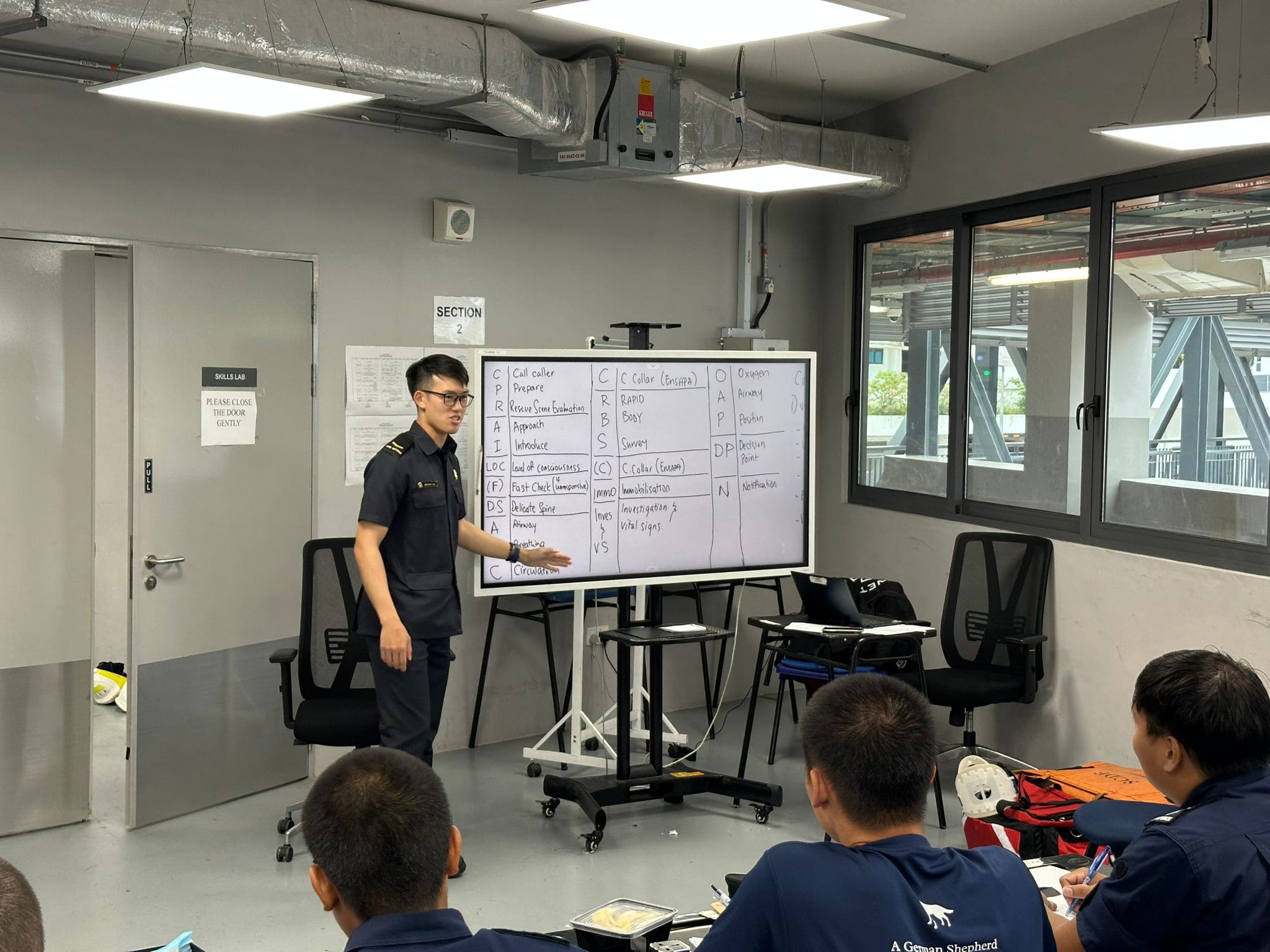
Daniel guiding trainees through the Patient Assessment Model (PAM) during a training session.
Four months into his role as an EMT instructor, Daniel started training a diverse group, including National Servicemen fresh out of BRT, SCDF regulars, and counterparts from other agencies, on top of his usual administrative tasks. “I wanted to develop into a confident and effective instructor,” he recalls. “But I was still figuring out how to balance teaching with my own growth.”
Over time, he learnt to understand each trainee’s unique learning style and motivations. “Taking the time to connect with each trainee allowed me to tailor my approach, making the sessions more impactful,” he shares.
Daniel recalls an EMT course where he realised that the trainees preferred a more interactive style of learning. He incorporated roundtable discussions using simulated scenarios and real-world challenges to engage them. “Acknowledging their efforts and providing timely feedback made a big difference. This approach also gives the trainees greater confidence to participate,” he adds.
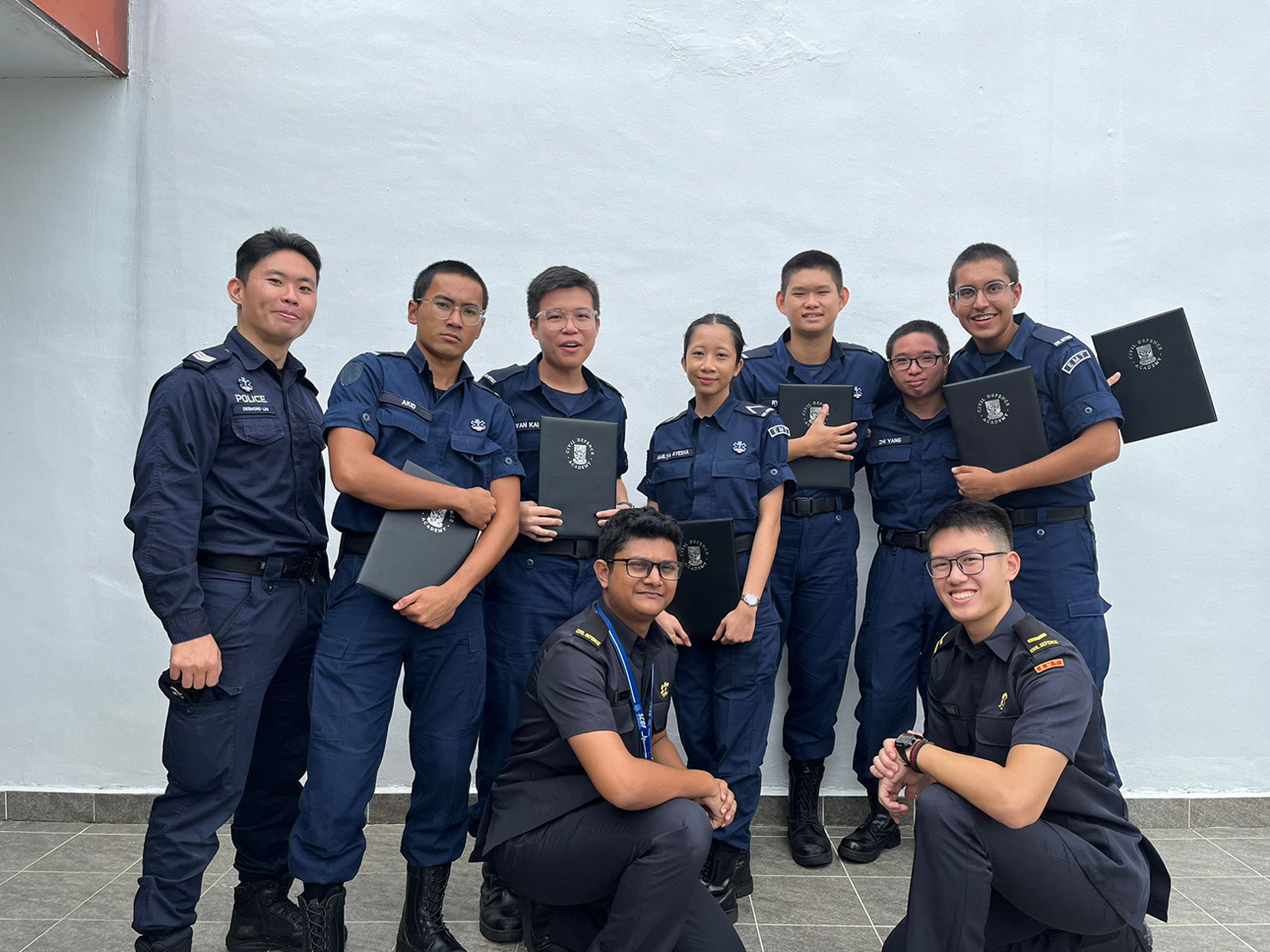
Daniel (front row, right) and his team celebrating their successful graduation from the 45th EMT course.
In addition to his instructor role, Daniel took on the position of Admin IC for his EMT course. Acknowledging the support of his teammates and seniors during this period, he said, “Initially, there were challenges as I adjusted to the role, but my teammates provided guidance and encouragement which helped me regain confidence. By the end of the course, I could see my progress and realised the value of resilience and a strong network of support.”
Upon graduating from the 168th Basic Rescue Training (BRT), Daniel received the Best in Delta Company award. Most recently, he received the SCDF Wall of Fame award in July 2024 in recognition of his exemplary performance. “Reflecting on 2024, I’m especially grateful for the people who had supported me at every stage of life,” he shares. “Each challenge presented an opportunity, and with their encouragement, I grew beyond my own expectations.”
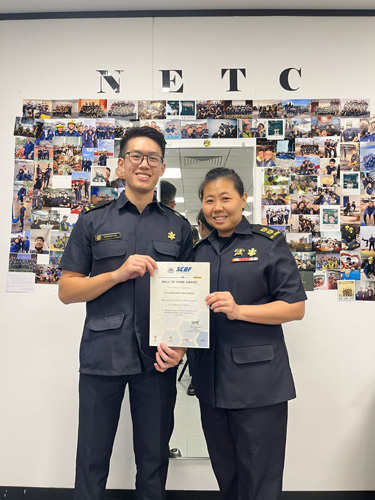
Daniel receiving the SCDF Wall of Fame award from LTC Carolyn Low, Principal Course Commander at the National EMS Training Centre (NETC).
Beyond the classroom, Daniel gained hands-on experience when he was seconded to an ambulance crew at a fire station. Working at the frontlines gave him a deeper understanding of frontline duties, which in turn enriched his training sessions. “The attachment brought my training to life, allowing me to bridge lessons with real-world challenges,” he explains.
Daniel, who graduated with a Diploma in Nursing from the School of Health and Social Sciences at Nanyang Polytechnic in early 2023, found it especially gratifying to apply his medical knowledge during emergencies. He recalls a shift where a fellow EMT noted that nurses often excel in the fast-paced environment of pre-hospital care. “Hearing that made me proud of my nursing background and how it prepared me for this role,” he says.
His dual expertise in nursing and emergency response has given him a unique perspective on patient care. “I understand the urgency and complexities of handovers from pre-hospital care to emergency response,” he explains. “This helps me ensure smooth transitions and maintain continuity of care.”
Nursing also taught him to communicate effectively under pressure, a skill invaluable in emergency services. As an EMT instructor, he honed his ability to simplify complex medical concepts, making them accessible to trainees and reassuring for patients during emergencies.
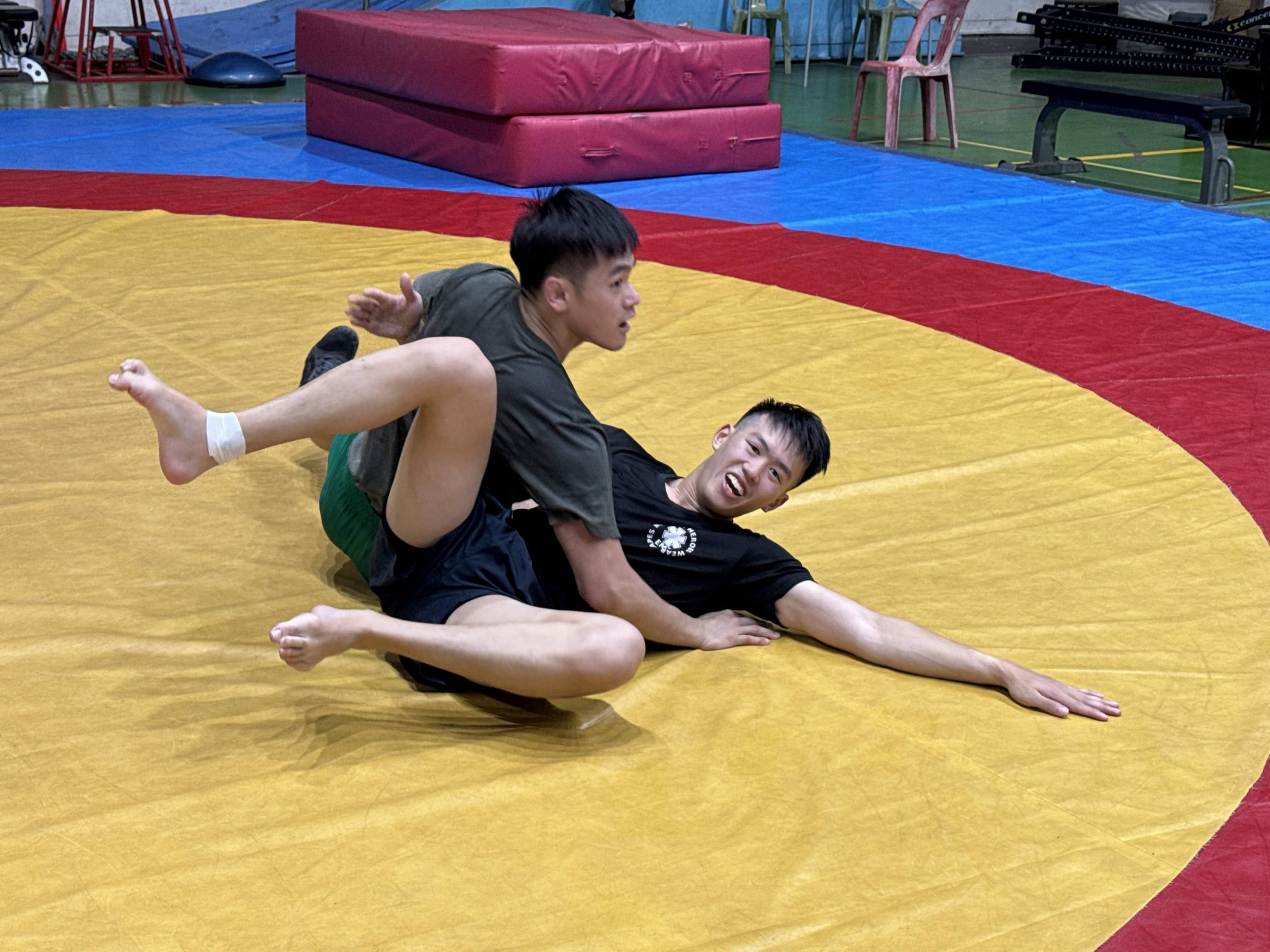
Daniel and his training partner honing their moves during wrestling class.
For Daniel, he dedicates the song “Warriors” by Imagine Dragons to 2024 — a fitting anthem to summarise his experiences. “The song resonates with me because it’s about perseverance and finding strength in adversity,” he shares. “Last year taught me that growth often comes from pushing through tough times and learning to trust myself.”
Looking ahead, Daniel is eager to lead his final EMT course, applying everything he has learnt. “I would like to leave a lasting impact,” he says. “I want to conclude my NS journey with a sense of fulfilment, ready to pursue my aspirations in the medical field.” While he has yet to settle on a specific path, he is considering several options, including roles in intensive care, emergency care, or becoming a medical doctor.
Reflecting on how far he has come, Daniel has a message for his younger self: “You’ve been through a lot, and there’s more ahead. You may not feel ready, but remember, you’re not alone. Take a deep breath, trust yourself, and enjoy the journey.”
1. Notebook and pen
“While digital tools are useful, there’s something purposeful about jotting things down on paper. It helps with staying organised, especially in busy or unpredictable situations, ensuring nothing important slips through the cracks.”
2. A disciplined and purposeful mindset
“Excellence in every task, big or small, gives meaning to daily responsibilities. Even if the task doesn’t align with your personal interests, putting in your best effort fosters growth and builds trust with your team.”
3. Physical fitness
“Staying fit isn’t just for fieldwork — it boosts energy, resilience and mental clarity, helping you meet the demands of your role with confidence.”
Like our stories? Subscribe to our Frontline Digital newsletters now! Simply download the HomeTeamNS Mobile App and update your communication preference to ‘Receive Digital Frontline Magazine’, through the App Settings.


